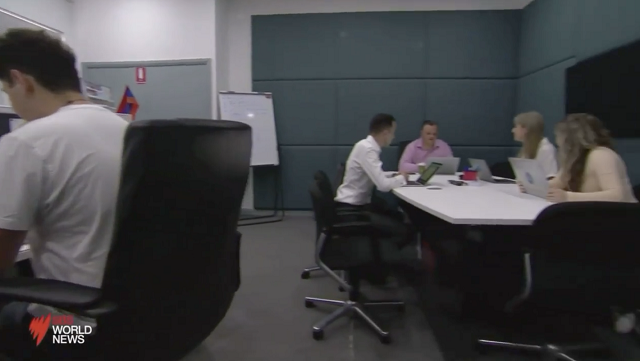On Friday 17th October 2020, SBS World News ran a story on its national primetime news bulletin covering the reactions of the Armenian-Australian and Azerbaijani-Australian communities to the war in Nagorno Karabakh (Republic of Artsakh).
However, the story continued Australian media’s trend to provide a false equivalence to Azerbaijan’s and Turkey’s roles, and the roles of Armenia and Artsakh.
For example, by constantly referring to Turkey’s role in the fighting as “Armenian claims” – when these are also the evidence-backed “claims” of France, Canada, the United States, Russia, Iran and many others including BBC News, The Guardian, France24, etc – is disappointing. We had communicated this to the reporter during, in the lead-up and following our interview.
It becomes further disappointing when the report refers to the Ganja “attack on civilians” without qualifying it as an “Azerbaijani claim” and ignoring the counter-claim that the Artsakh Army struck the Ganja military airbase housing Turkish F-16s, which have been bombing Armenian civilians. Another thing we had communicated to the reporter, even on the record.
And if there was to be mention of the Ganja claims as fact, why will there not be mention of Amnesty International’s finding that Azerbaijan hit Artsakh’s Stepanakert with a cluster bomb? Is a war crime, verified by an independent source, not newsworthy? Is Amnesty International not credible? This is another fact the reporter was aware of due to our conversations and interviews.
The unqualified regurgitation of Azerbaijani propaganda about the deaths of civilians in Khojaly during the previous war as “fact”, while not mentioning the independently documented anti-Armenian pogroms in Sumgait and Baku as well as the massacres in Maraga was disappointing to say the least. It seems the report was keen on even providing false equivalence to genocide, and because the Armenian Genocide was discussed, the tragedy in Khojaly needed to be given airtime, which was never an attack by Armenians during the war of the 1990s – something even Azerbaijani journalists have verified. Regardless, it wasn’t presented as a “claim”.
The Azerbaijani Embassy was also interviewed – given the final denialist say on what France, U.S., France, Greece, Canada, the mass media and others have verified regarding Turkish involvement – in a story that was to cover the reactions of the Armenian-Australian and Azerbaijani-Australian communities. If this trend of false equivalence was fair across the board, it should have meant a representative of the Armenian Foreign Ministry deserved the same airtime as the representative of a criminal and corrupt dictatorship. This was also offered to the reporter.
While we are debunking the disappointing standard of journalism on this issue, can we ask why no Australian report has decided to characterise the nations involved in this? Do Australians not deserve to know that Azerbaijan is a dictatorship, where their current president took over from his father and his wife is his vice-president? Where Armenia has come out of a period of a velvet revolution and democratic elections? Do they not deserve to know that the twin dictatorships of Turkey and Azerbaijan have a combined 100 million population, while democratic Armenia and Artsakh are populated by 3 million Christians? Why is this context not important to Australian media?
Journalists and producers are likely sick and tired of hearing from us after three weeks of constant communications, protests, meetings, etc. However, these three weeks have seen civilian towns in the Armenian homeland turned to rubble, genocidal threats by two Neo-Ottoman dictators, over 500 soldiers killed and thousands of military and civilian casualties.
Thank you for the opportunity of having our feelings aired, but we demand better. We will demand better.
Watch the report by clicking here.
SBS has also covered the interviews in an article, which can be viewed by clicking here.




















































